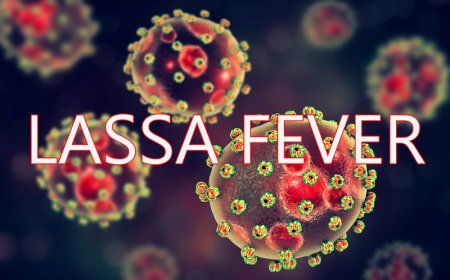Three Israeli Hostages Handed over by Hamas in Gaza, as more Palestinian Prisoners to be Freed Under Ceasefire Deal.

Three Israeli Hostages Released by Hamas Under Ceasefire Deal as Israel Frees Palestinian Prisoners
Under a fragile ceasefire agreement mediated by Qatar, Egypt, and the United States, Hamas released three Israeli hostages on February 8, 2025, in exchange for 183 Palestinian prisoners. The hostages—Eli Sharabi, Ohad Ben Ami, and Or Levy—had been held captive in Gaza for 491 days following Hamas’s October 7, 2023, attack on Israel. The exchange, facilitated by the International Committee of the Red Cross (ICRC), has drawn both relief and outrage, particularly due to the frail and malnourished condition of the released hostages.
Details of the Hostage Release
Hamas handed over the three hostages in a staged release event, where they were filmed making statements before being transferred to the ICRC. The Israeli government has strongly condemned this as a "crime against humanity", arguing that it was an act of psychological warfare. Israeli President Isaac Herzog and Prime Minister Benjamin Netanyahu criticized the "inhumane treatment" of the hostages, pointing out their emaciated appearance and visible distress.
The hostages, all civilians, were taken hostage from their homes in Israel during the October 7, 2023, Hamas-led attack, which resulted in the deaths of over 1,200 Israelis and the capture of approximately 250 individuals. Since then, Israeli military operations in Gaza have killed over 47,000 Palestinians, with thousands more displaced.
Palestinian Prisoner Exchange
As part of the swap, Israel released 183 Palestinian prisoners, many of whom were detained during recent military operations. Among them were women, minors, and individuals held under administrative detention (detention without formal charges). Hamas has framed the release of these prisoners as a victory, highlighting what they call "Israel’s forced concessions" in the face of continued resistance.
International and Domestic Reactions
The exchange has elicited strong reactions from both sides:
Israeli officials have decried the hostage release process, particularly the manner in which Hamas presented the captives before their return. Many Israelis are demanding that the government intensify military operations to secure the release of the remaining hostages.
The families of hostages have expressed mixed emotions—relief for those freed but increased anxiety over the dozens still in captivity.
The Palestinian Authority (PA) has welcomed the return of prisoners, calling it a step toward addressing human rights violations in Israeli prisons.
International humanitarian groups, including the ICRC and the United Nations, have reiterated the need for all parties to adhere to international humanitarian law, ensuring that detainees and hostages are treated humanely.
Ceasefire Dynamics and Future Prospects
The current ceasefire, which facilitated the hostage-prisoner exchange, is the result of intensive mediation efforts. However, its stability remains uncertain:
Hamas has accused Israel of delaying humanitarian aid shipments into Gaza, exacerbating the already dire humanitarian crisis.
Israel maintains that Hamas is still holding dozens of hostages and demands their unconditional release before agreeing to any long-term truce.
Ongoing negotiations involve discussions about a phased withdrawal of Israeli forces from parts of Gaza and a potential temporary humanitarian corridor to provide aid to civilians.
Background: The Gaza Conflict and the Path Forward
Since the outbreak of hostilities on October 7, 2023, the war has devastated both Israeli and Palestinian communities:
Israel’s losses: Over 1,200 Israelis were killed, with thousands injured and hundreds taken hostage during the Hamas attack.
Gaza’s humanitarian crisis: More than 47,000 Palestinians have been killed in Israeli airstrikes and ground offensives, and much of northern Gaza lies in ruins. Displacement levels have reached historic highs, with over 2 million Gazans in need of urgent humanitarian assistance.
What’s Next?
As ceasefire negotiations continue, the following key issues remain unresolved:
1. Further hostage releases: Hamas still holds dozens of Israeli captives, including soldiers and civilians.
2. Israel’s military operations: Netanyahu's government has not committed to a full ceasefire and maintains that military action will continue until Hamas is dismantled.
3. Humanitarian relief: Aid organizations are urging Israel to lift restrictions on essential supplies, warning of famine-like conditions in Gaza.
4. A long-term peace agreement: While international pressure for de-escalation is increasing, deep-rooted hostilities continue to fuel uncertainty.
For now, the delicate ceasefire remains in place, with both sides preparing for the next phase of negotiations—or renewed conflict.






































